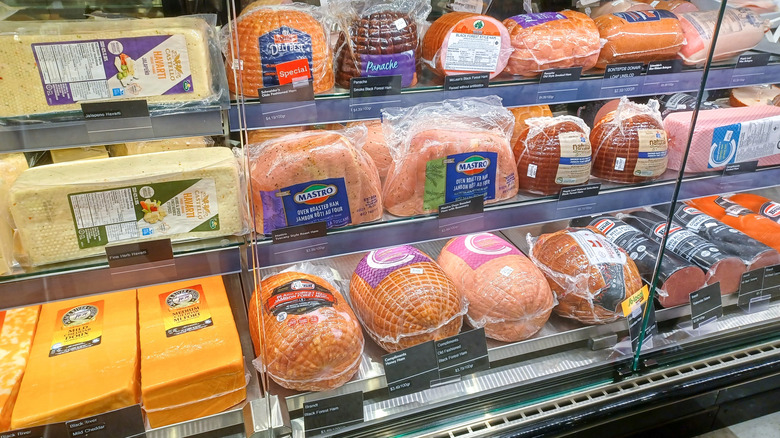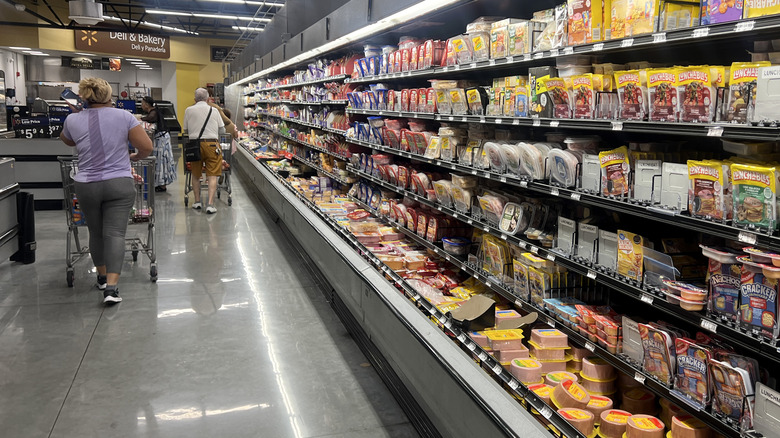The Least Processed Meat You Can Find At The Deli
If you've ever stood paralyzed in the grocery store's meat section, trying to make a healthier choice, you're not alone. With so many cold cuts, cured meats, and specialty slices staring back at you (like "natural," "no added nitrates," and "uncured"), it can be tough to know what's actually best for you. (What are nitrates in deli meat, anyway?) The good news? There are ways to make better choices at the store, if you know what to look (and ask) for. Your best bet for minimally processed meat is to head for the deli counter and look for whole cuts; Things like oven-roasted turkey breast, chicken, or roast beef that's been cooked in-house.
One of the best tools you have at the deli counter is your voice. Ask how the meat is made, where it comes from, and what's in it. Some chains are moving toward cleaner ingredients and even sourcing meat from regional producers. Good questions to ask are, "Is this roasted in-house?" or "Was this made from a whole cut of meat?" If the answer is yes, that's a cleaner, minimally processed option.
Additionally, asking to see the ingredient list is one of the smartest things you can do. A deli worker should be able to provide this information; It may be available on packaging in the back or on the store's website. Look for short ingredient lists with familiar words. If you see items like sodium nitrite, BHA, corn syrup solids, or carrageenan, you're looking at a more processed meat product. While all deli meats are technically processed, when it comes to ingredients, simpler is always better.
Skip the pre-packaged deli meat
Lean meats with minimal seasoning tend to be less processed than heavily flavored or spiced versions. Even though smoked, honey-baked, barbecue, or Cajun-style deli meats sound so tempting, they often contain more additives and sugar. Stick with plain, low-sodium options when available; These are more likely to be whole cuts with fewer unnecessary extras.
Ironically, the meat in the deli case may be less processed than some of the stuff in vacuum-sealed plastic packages just a few steps away, in the refrigerated aisle. While both options can be sliced to order, the deli case often gives you more opportunity to ask questions and get direct answers about the meat's origin, preparation, and ingredients. If the deli worker is knowledgeable and the store prioritizes in-house preparation, you're in a better position to make informed choices.
Other things to note: If you're looking at perfectly shaped, vacuum-sealed lunch meat, or the meat has a very uniform texture and color, chances are it's highly processed. Meats like bologna, olive loaf, and some commercial turkey or chicken slices are usually emulsified and molded, meaning they're made from a mushy blend of meats and additives to improve consistency and shelf life. Even if they're cut fresh in front of you, they were processed well before hitting the slicer. The deli counter doesn't have to be a minefield of mystery meats once you know all the tricks. Seek out freshly roasted meats, minimal ingredient lists, and honest answers from the staff to source the least processed proteins available.

